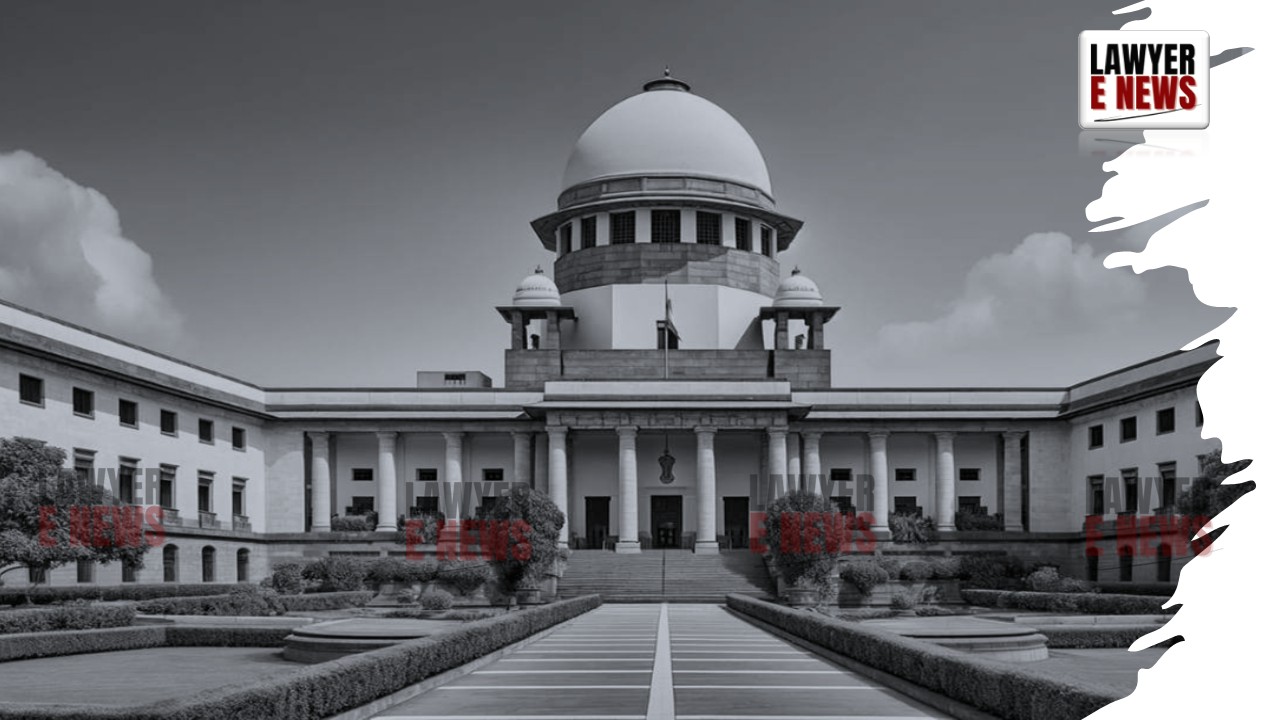-
by sayum
14 February 2026 2:22 PM



Supreme Court of India upholding concurrent findings of the Trial Court and the Madras High Court that an unregistered Will relied upon by the defendants was invalid due to suspicious circumstances. The Court confirmed the plaintiffs’ entitlement to 5/7th of the suit property and awarded 1/7th shares to the children of the deceased testator’s second wife.
The dispute arose over the partition of properties originally owned by Balasubramaniya Thanthiriyar, who had divided his estate through a partition deed dated December 4, 1989. The first schedule of the partition deed, containing the suit properties, was retained by the testator.
After his death on November 28, 1991, the plaintiffs (his children through his first wife) sought partition, claiming 5/7th of the property. The defendants (the second wife and her children) relied on an unregistered Will dated April 6, 1990, allegedly bequeathing the properties to them.
Both the Trial Court and the High Court dismissed the defendants' reliance on the Will, citing numerous suspicious circumstances. The defendants challenged the decisions before the Supreme Court.
Supreme Court’s Observations
The Court noted that while the execution of a Will in compliance with Section 63 of the Indian Succession Act, 1925, and Section 68 of the Indian Evidence Act, 1872, establishes procedural validity, it does not preclude scrutiny of suspicious circumstances surrounding its genuineness.
Suspicious Circumstances Highlighted:
Active Role of Beneficiary in Procurement: The first defendant, a beneficiary, procured stamp papers for the Will while claiming no involvement in its execution.
Contradictions About Testator’s Health: The Will claimed the testator was in good health, but evidence showed severe illness at the time of execution.
Non-Matching Signatures: Discrepancies were noted between the testator’s signatures on the Will and earlier documents.
Non-Examination of Key Witnesses: Neither the scribe nor the typist of the Will was examined.
Incongruities in Execution Location: The Will was executed in Madurai, far from the testator’s residence in Tenkasi, raising questions about the necessity and circumstances of the location.
The Court also referred to precedents, including Derek A.C. Lobo v. Ulric M.A. Lobo and Moturu Nalini Kanth v. Gainedi Kaliprasad, reiterating that suspicious circumstances must be satisfactorily explained to validate a Will.
The Supreme Court upheld the concurrent findings of the Trial Court and the High Court, confirming that the Will was invalid due to unresolved suspicious circumstances. It dismissed the appeal and reaffirmed the plaintiffs’ entitlement to 5/7th of the suit property. The two children of the second wife, though illegitimate, were granted 1/7th shares each as per the testator’s recognized ownership of the property.
This judgment underscores the importance of proving not only the procedural validity of a Will but also its genuineness. Suspicious circumstances surrounding a Will’s execution can render it invalid, even if it complies with statutory requirements.
Date of Judgment: January 2, 2025
